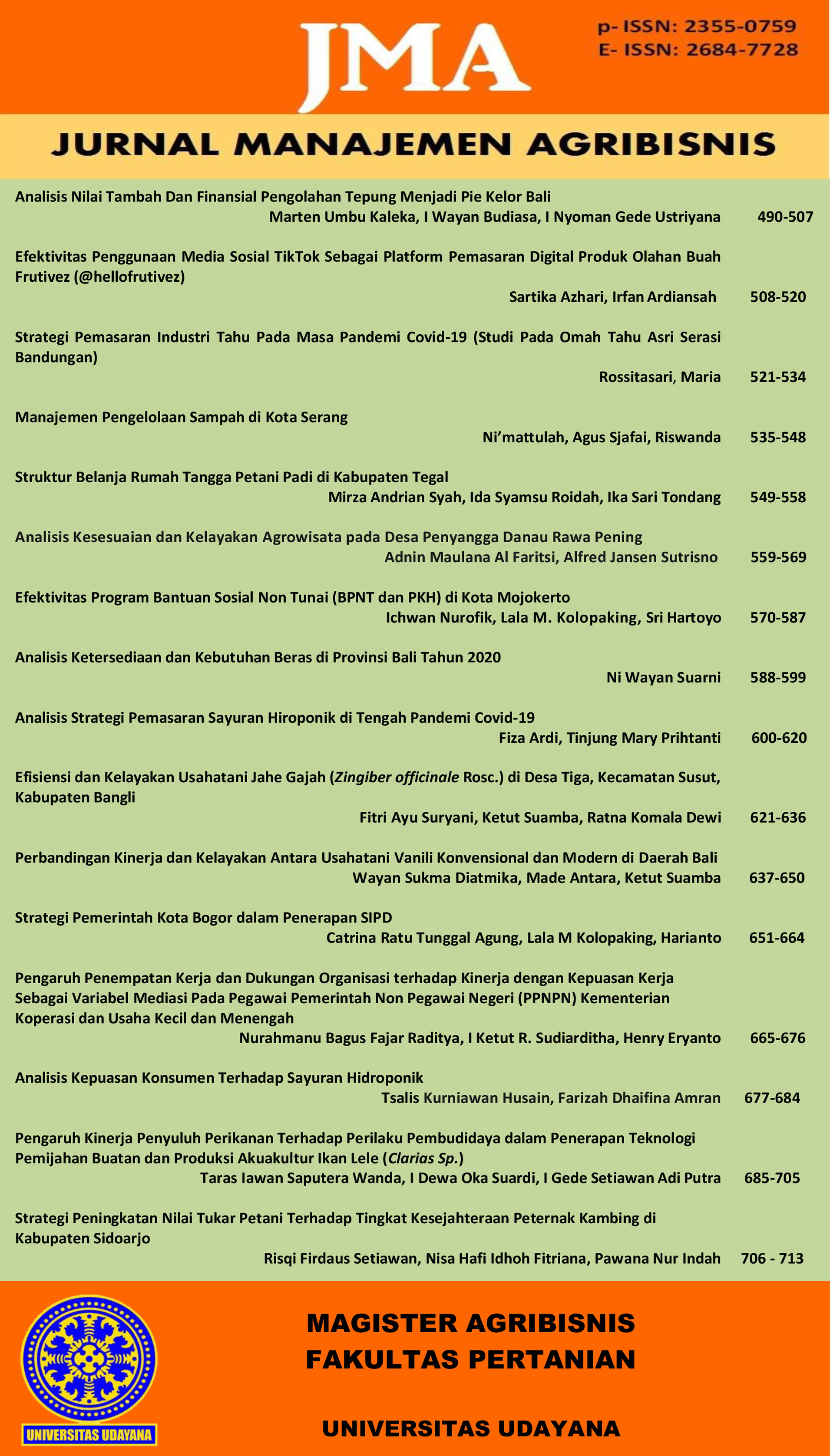Efisiensi dan Kelayakan Usahatani Jahe Gajah (Zingiber officinale Rosc.) di Desa Tiga, Kecamatan Susut, Kabupaten Bangli
Abstract
The purpose of this study was to identify the factors that affect the production of ginger, analyze the level of technical, allocative and economic efficiency of ginger farming, identify the sources of technical inefficiency and analyze the feasibility of ginger farming in Tiga Village, Susut District of Bangli Regency. Data analysis was performed by using efficiency production analysis through stochastic frontier approach and farming analysis. The result showed the factors that significantly affected production of ginger farming in Tiga Village are land, seeds, and dried bamboo leaves. Efficiency analysis result showed that technical efficiency already efficient with a value of 0,89, while allocative and economic efficiency are not enough efficient with a value of 0,41 and 0,36. Sources of technical inefficiency of ginger farming in Tiga Village do not come from sosio economic factors of farmer but from risk factors that cannot be controlled by farmers such as weather, pest and disease or natural disaster. Feasibility of ginger farming obtained an R/C ratio value of 1,56 based on total cost, so ginger farming in Tiga Vilage is feasible and profitable to develop. Suggestion that can be given in this study are, first, establish the formation of ginger farmer group in Tiga Village as the a forum for sharing the information, improve the bargaining position of ginger farmers. Second, conduct counseling and training about ginger cultivation and business opportunities of ginger farming.
Keywords: Ginger Farming, Stochactic Frontier, Efficiency, Feasibility













